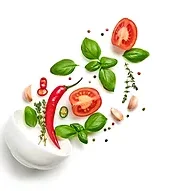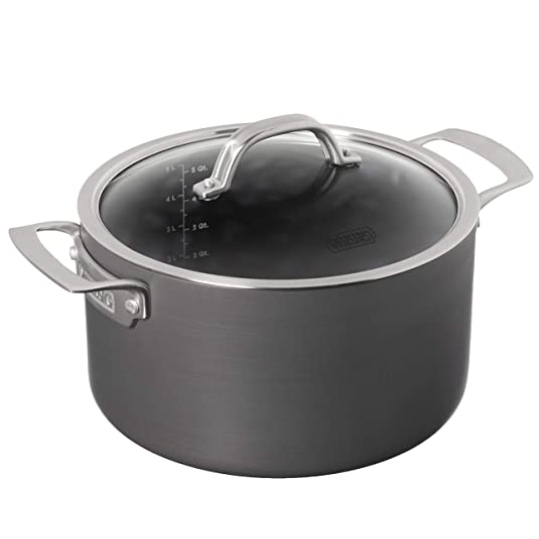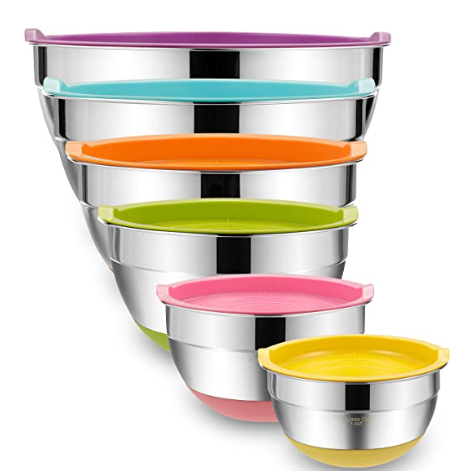Another Autumn favourite, this cabbage soup is wonderfully flavourful and takes advantage of the fresh cabbage available at this time of year. If you’re lucky enough to have a garden with fresh green cabbage, this soup is a must.
The flavour is reminiscent of Estonian sauerkraut, having many of the same ingredients. It takes a bit of time to make, as the cabbage must be completely cooked through. Skimping on the boil time will leave you with crunchy, raw cabbage (no one wants that). Because it takes so long for the cabbage to cook, this soup is made in stages with the other ingredients being added based on the remaining cooking time so they don’t become overcooked.
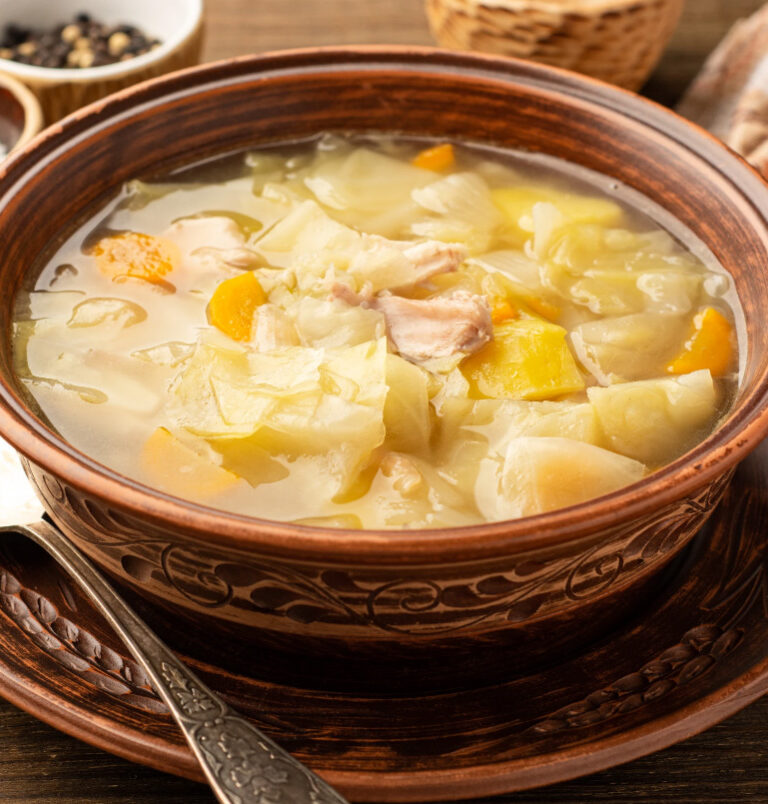
Mamma’s Estonian Cabbage Soup
Description
This recipe also calls for a cut of meat many people are unfamiliar with - cured pork belly. Pork belly is available in most large grocery stores in 3" square-ish pieces that are packaged and sold individually. When looking at each piece, you will see an obvious layer of fat alongside the meat. Try to select pieces that are more meat than fat.
The curing process for pork belly is done by salting, and it's important for you to determine the salt level of the brand available near you as the brands can vary wildly. Over the years, I've had the level of salt range from almost bland to salted until no more could be absorbed into the meat. If you open up a package and feel the salt residue, you will need to rise and soak the meat before cooking with it (refreshing the water many times over several hours). The salt present in the pork belly is the only salt that will be introduced into the soup, so the saltier the meat, the saltier the soup.
Though this recipe doesn't call for it, you can also add carrots to this soup for added flavour and colour.
Ingredients
Directions
Preparing the Pork Belly
-
Before beginning this recipe, cut the pork belly into cubes (roughly 4 cubes per package) then determine the level of saltiness:
-
If granules of salt are visible on the meat and in the packaging, you will need to rinse and soak the meat in cold water for 2 hours, rinsing and refreshing the water every 1/2 hour. After 2 hours test the meat by tasting it (touch it and taste your finger). If the meat is still overwhelmingly salty, rinse and repeat for another hour.
-
If you don't see any salt on the meat or in the packaging, test the meat by tasting it (touch the meat then taste your finger). It should taste salty, but not overwhelmingly so. At this level of saltiness, rinse and soak it for only 1/2 hour prior to cooking.
-
If it doesn't taste very salty, just rinse prior to adding to the soup - you may need to add salt to the soup in the later stages.
-
Preparing the Soup
-
Chop the cabbage and onion then add to a large soup pot along with the water and caraway seeds. Place on high heat and bring to a boil. Meanwhile, rinse the sauerkraut in a sieve under cold water then press out any excess liquid.
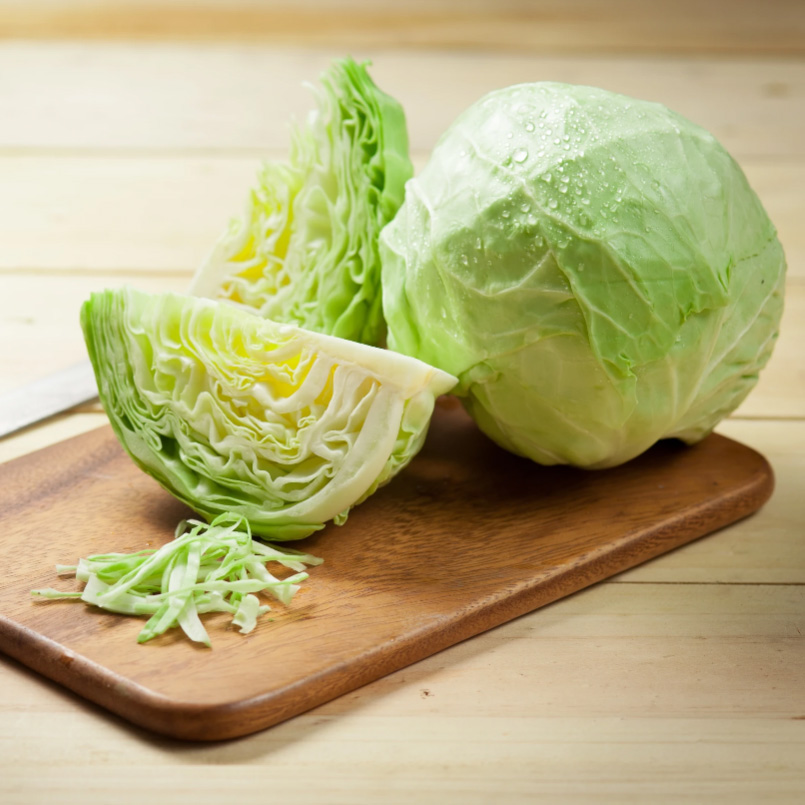
-
Once the pot comes to a boil, reduce the heat to medium, add the rinsed sauerkraut, stir, then cover and let boil for 20 minutes or until the cabbage starts to reduce in volume.
-
Drain the pork belly if you had to reduce the salt level then add the meat to the soup. Increase the heat and bring it back to a boil. Once boiling again, reduce the heat to medium-low, cover and let boil until the cabbage is soft, stirring every 15 minutes.
-
Peel, cube and rinse the potatoes (and carrots if using - optional). Leave cut potatoes in a water-filled bowl to avoid discolouring.
-
Test the cabbage after 45 minutes to see if it requires more time. Once the cabbage is soft, remove and reserve the meat, then add the potatoes (and carrots). Boil until the potatoes are fork tender.
-
Test the saltiness of the soup. If needed, add sea salt. If the soup has become too salty, add water and bring to a boil again. Otherwise, remove from the heat, add the sweetener, and stir until dissolved.
-
Serve with a couple of cubes of the pork belly - if pieces have too much fat this can be trimmed if desired.
Servings 6
- Amount Per Serving
- Calories 397kcal
- % Daily Value *
- Total Fat 9.4g15%
- Saturated Fat 3.33g17%
- Cholesterol 36mg12%
- Sodium 287.75mg12%
- Total Carbohydrate 65.24g22%
- Dietary Fiber 3.47g14%
- Sugars 8.88g
- Protein 17.85g36%
- Vitamin K 81.78 mcg
- Thiamin 0.28 mg
- Riboflavin 0.19 mg
- Niacin 3.57 mg
- Vitamin B6 0.37 mg
- Vitamin B12 0.31 mcg
- Pantothenic Acid 0.75 mg
- Phosphorus 121.15 mg
- Copper 0.11 mg
- Manganese 0.22 mg
- Vitamin A 1%
- Vitamin C 54%
- Calcium 8%
- Iron 5%
- Selenium 14.63mcg
- Zinc 1.6mg
- Magnesium 27.72mg
- Vitamin E 0.25mg
- Vitamin D 0.51mcg
* Percent Daily Values are based on a 2,000 calorie diet. Your daily value may be higher or lower depending on your calorie needs.
